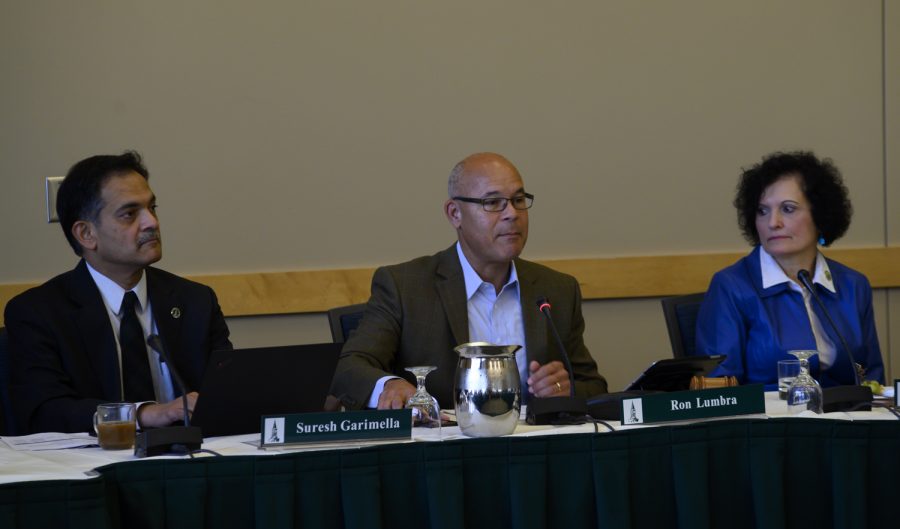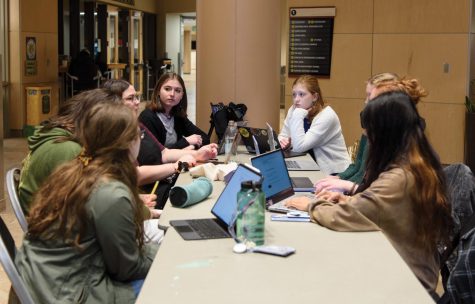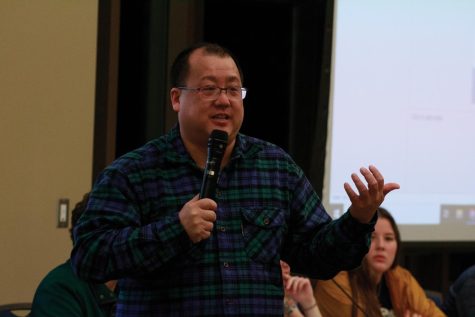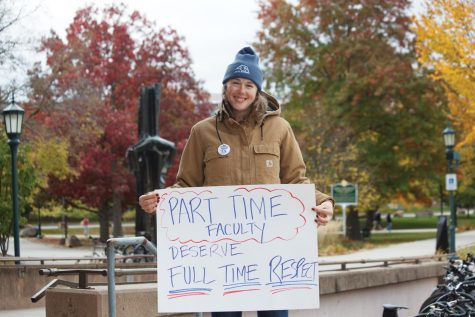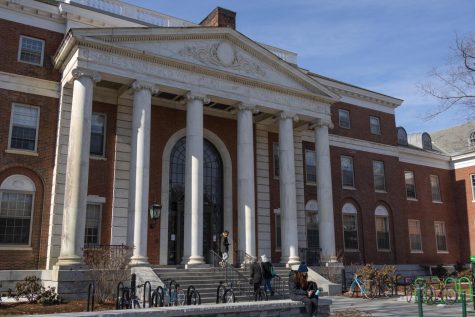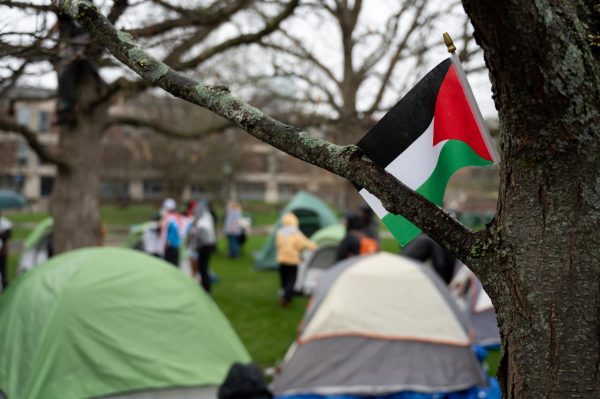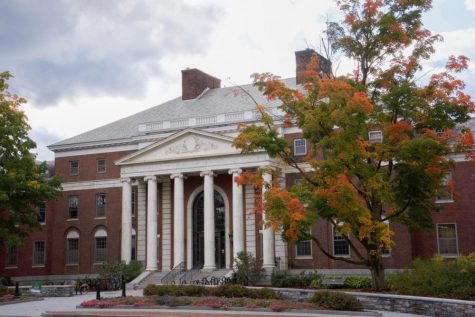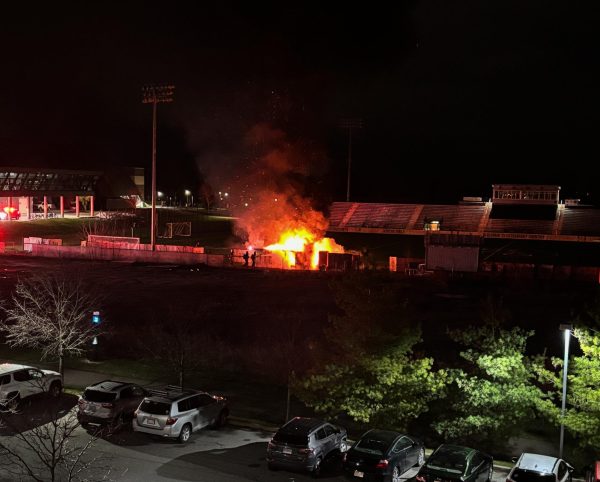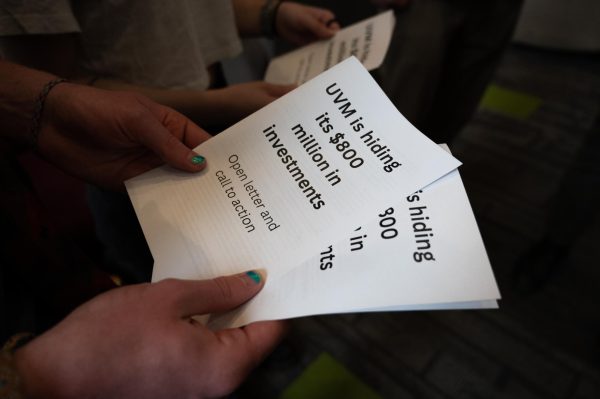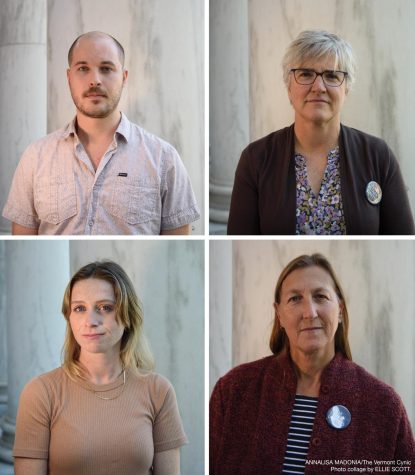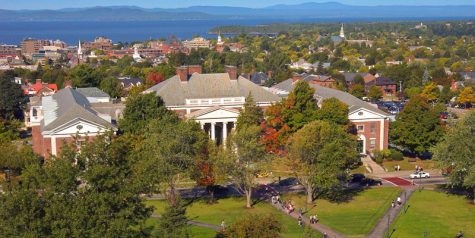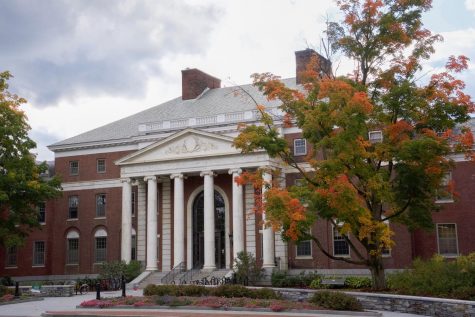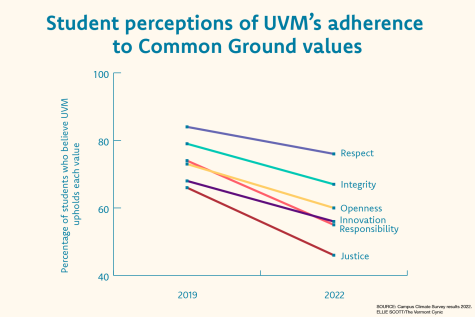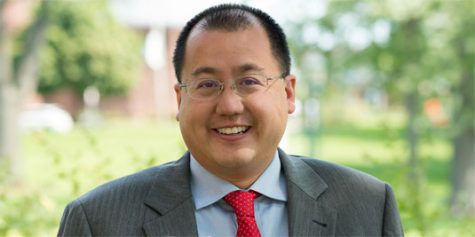Survey shows UVM community values student success after pay and workload cuts to faculty
Mac Mansfield-Parisi/The Vermont Cynic
(Left to Right) President Suresh Garimella, Chair Ron Lumbra and Provost Patricia Prelock sit at a board of trustees meeting, Oct. 26.
After cutting the pay and workloads of some faculty members, a survey conducted by UVM administration shows the UVM community sees student success as the highest priority.
The survey was sent on April 17 by President Suresh Garimella. The survey was meant to gather input for revising UVM’s “Amplifying our Impact” statement, which outlines the University’s values and strategic goals.
In total 1188 students, faculty and staff responded to the survey.
“‘Ensuring Student Success’ was identified as most critical to our future by almost four times the respondents who identified ‘Investing in our Distinctive Research Strengths’ as the highest priority, and five times the number who selected ‘Fulfilling our Land Grant Mission,’” Garimella stated in a May 15 email announcing the results.
The day before the survey results were sent, students, faculty and staff held a protest against budget cuts imposed by deans in response to budgetary shortfalls caused by the COVID-19 pandemic, according to UVM.
In the College of Arts and Sciences, non-tenure-track faculty will see a 25% reduction in their pay and workload, according to a May 7 email from dean William Falls.
The reductions will be spread out across both the fall and spring semesters for the 2020-2021 academic year with the faculty working full time in the fall semester while being paid 25% less. Then in the spring semester impacted faculty will only work at 50% capacity, according to Falls’ email.
Professors and students have voiced their concerns that these cuts will hurt the student experience.
“It seems incredibly unfair, but it also seems like a bad idea for the future of the University,” said Professor Sarah Alexander, an organizer of the May 14 protest. “For the quality of the education that we can deliver to our students, we need teachers, not administrators.”
Alexander said she thinks the cuts will lead to a lot fewer classes for students, and that it will hurt the curriculum.
UVM Spokesperson Enrique Corredera said in a statement to the Cynic that UVM has the right to adjust workloads and pay according to their contract.
“The collective bargaining agreement explicitly recognizes the University’s need—on an annual basis—to adjust lecturer workloads between 0.75 and 1.0, depending on student demand,” he stated.
The administration has cited recent research that projects college enrollment in the US will be down 20% for the 2020-2021 school year.
In a press conference on May 11 regarding the financial obstacles UVM is facing, Garimella said that if more students enroll in the fall than they’re expecting, that could mean a reversal of the workload and pay reductions.
Garimella did not say when the administration would know how many students to expect in the fall.
Corredera also pointed out in the statement that benefits are not being cut, which 9-month lecturers receive for 12 months of the year.
Junior Cobalt Tolbert, another leader of the May 14 protest, recognized that his quality of education is dependent on how his professors are treated.
“I’m here because I realize that our student interests are deeply intertwined with the well-being of our teachers,” Tolbert said. “We get a better education when our teachers are better paid, better-taken care of when there’s more of them.”
At the press conference, Garimella said that because UVM can’t increase tuition to deal with COVID-19 costs, the university must balance with expenditures.
“We’re one of the state’s largest employers and I take that responsibility very seriously,” Garimella said. “I personally would like to do all we can to minimize pain especially those on the lower end of the spectrum.”
A revised statement was posted to UVM’s website office based on the survey results, which outlined the importance of three strategic imperatives: ensuring student success, investing in our distinctive research strengths and fulfilling our land grant mission.
The revisions made to the statement also emphasized the importance of the liberal arts and humanities at UVM.
“We must provide an unparalleled educational experience for our students by continually enhancing course offerings through rigorous evaluation and evolution, and alignment with a liberal arts foundation and societal demands,” the revision states.
Garimella stated in the May 15 email, he and Provost Patty Prelock will discuss their thoughts on the implementation of this vision in the coming weeks.
The UVM board of trustees endorsed the revised statement in their May 15 meeting.
Later on, in the same meeting, president of United Academics, UVM’s faculty union, Julie Roberts urged the board to reverse the budget cuts during the public comment forum.
“There is absolutely no reason that United Academics representing faculty and the administration cannot get together, look at the numbers and consider a progressive plan for budget adjustments,” she said.
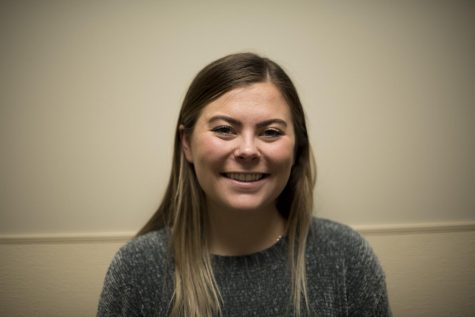
Emma Pinezich is a senior Political Science and French double major from New York. She started working for the Cynic as an illustrator in her first year...


